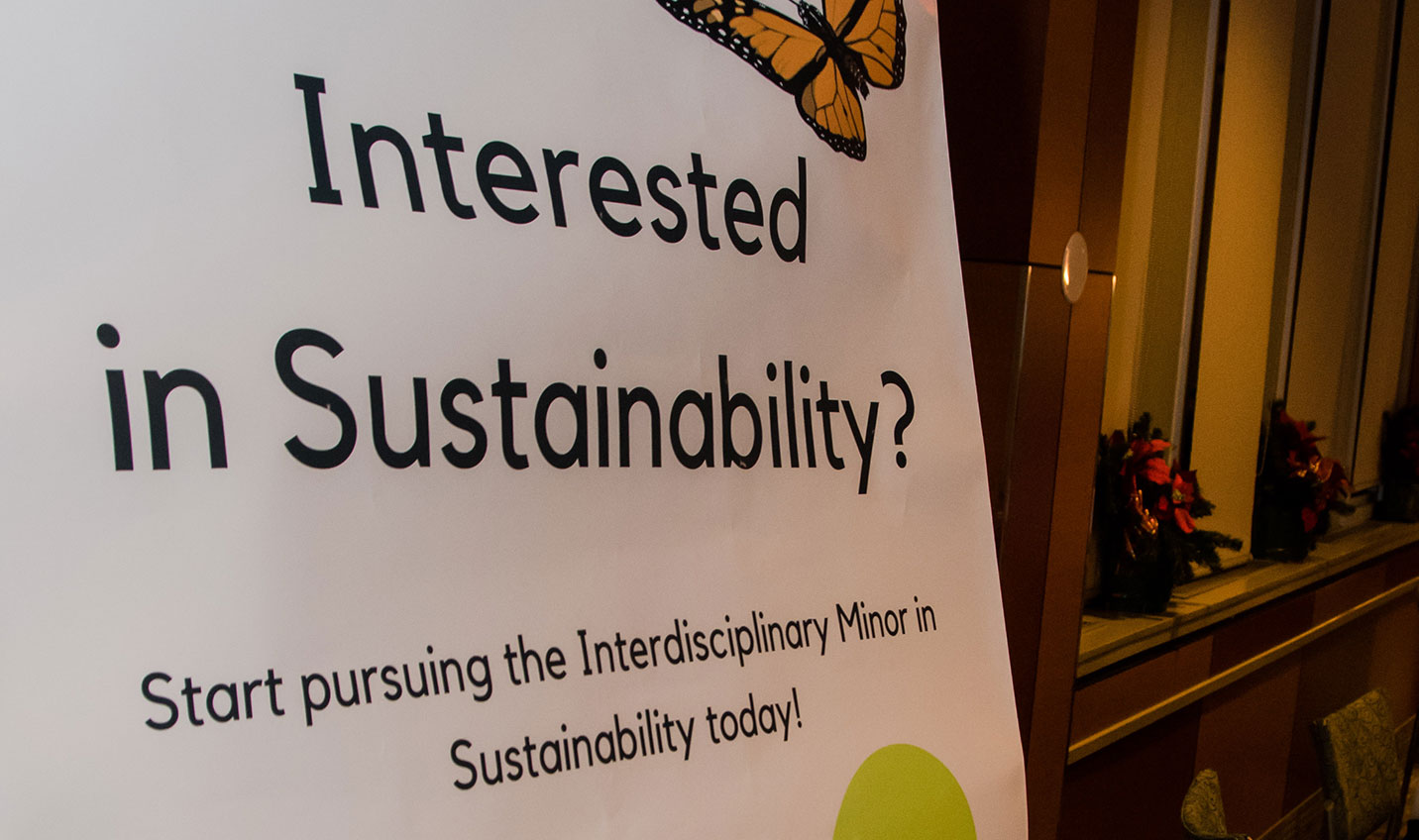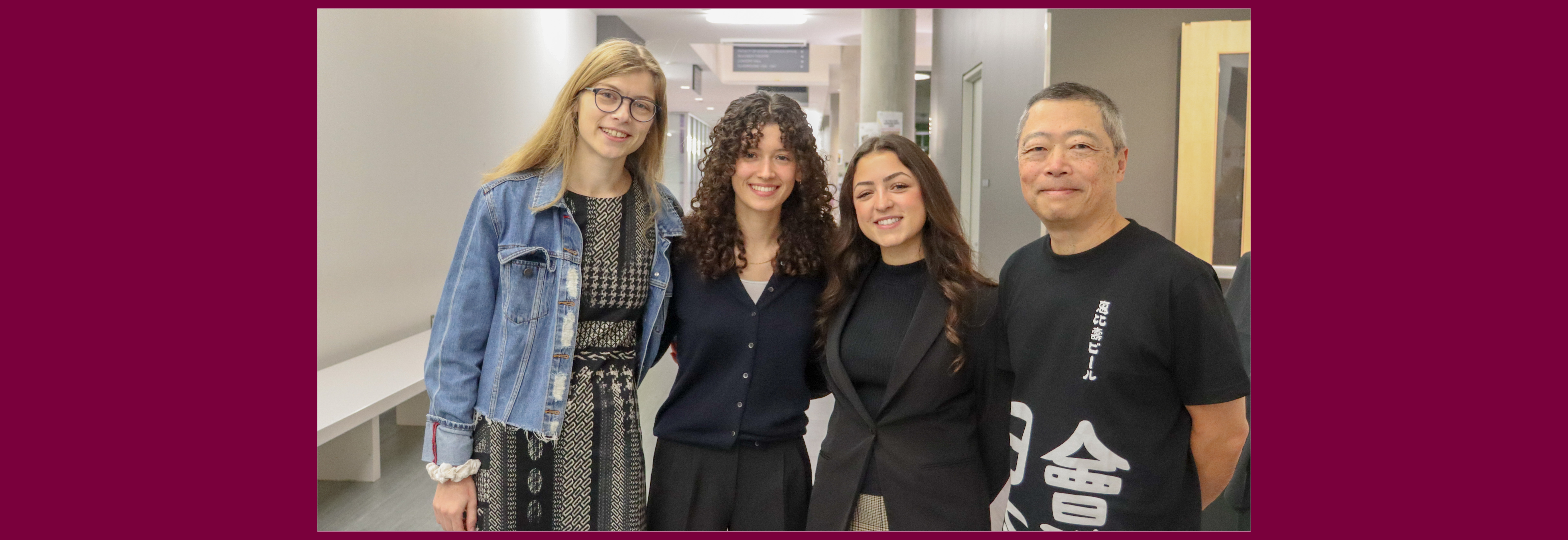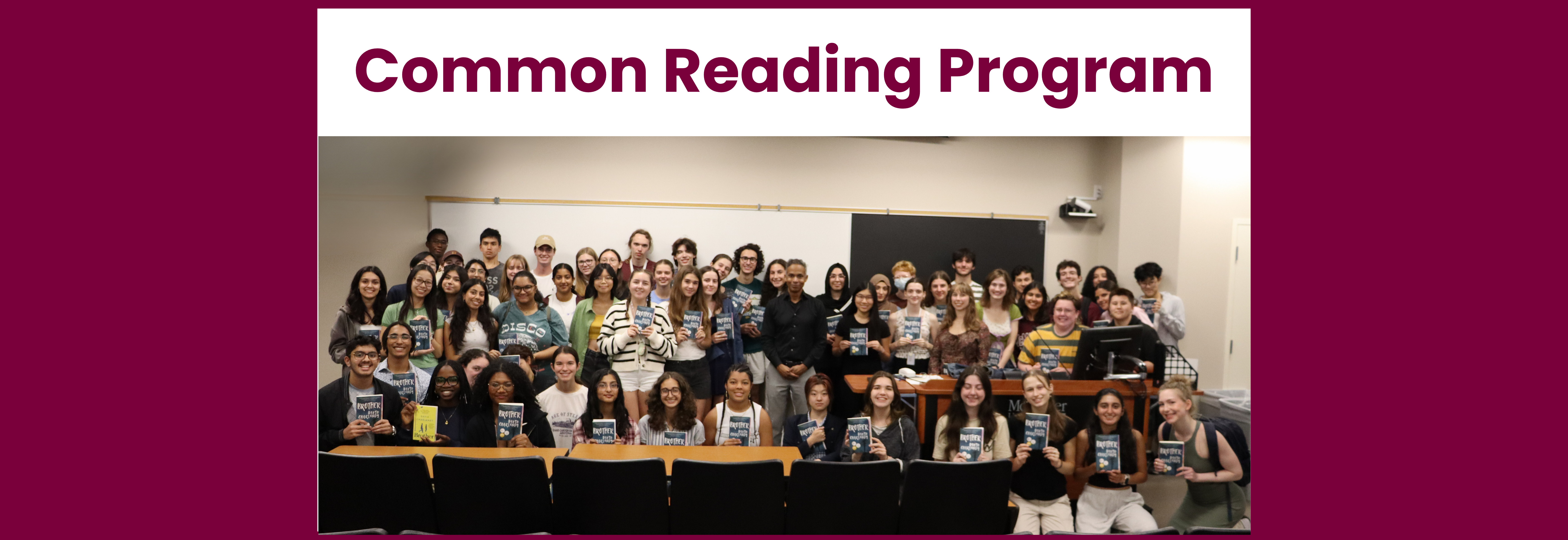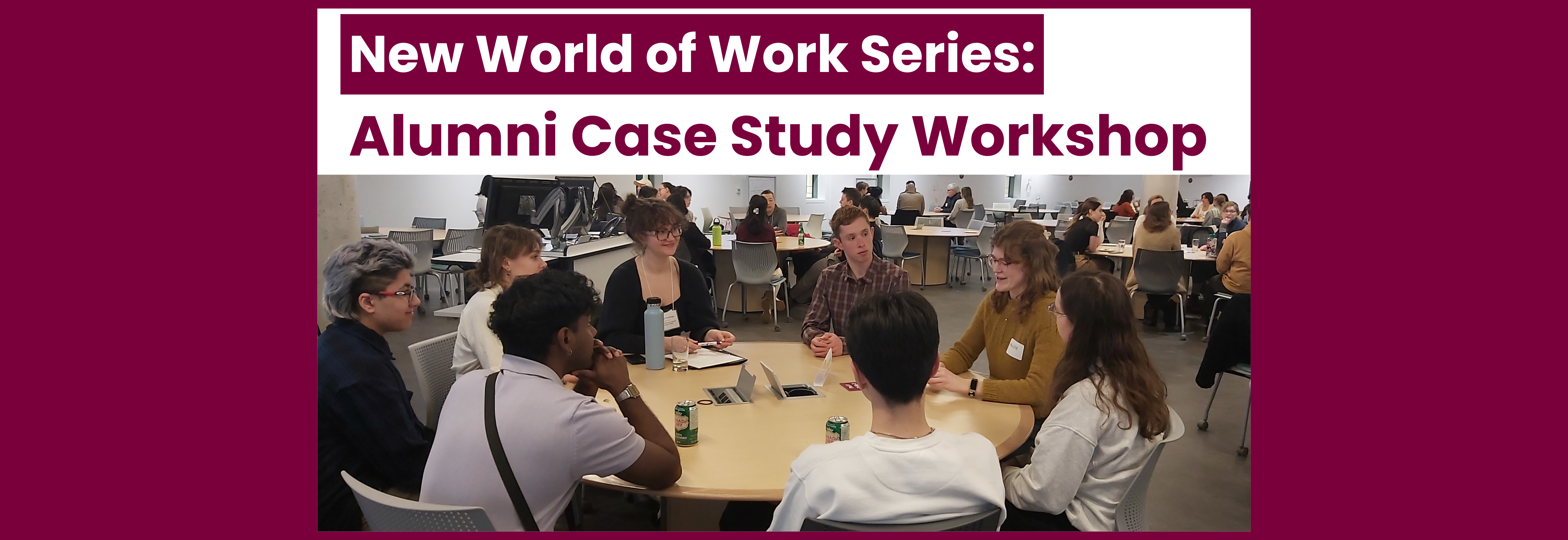Artsci Collaborates to Create the Next Generation of Sustainable Thinkers

In an era of rapid climate change and potential environmental crisis, new questions about the viability of the earth’s future seem to arise every day. That’s why, through its Interdisciplinary Minor in Sustainability, McMaster University has spent the past five years preparing the next generation to think more holistically and systematically about social and environmental issues.
Implemented by the Academic Sustainability Programs Office and hosted and supported by the Arts & Science Program, this unique academic minor embraces the Artsci pedagogy, teaching students from a holistic, interdisciplinary perspective. Specifically, it provides an opportunity for students to explore the diverse aspects of sustainability by taking courses from different Faculties and programs and integrating them into a cohesive whole.
Some such courses include Social Sciences’ “Anthropology of Food,” Business’ “Corporations and Society,” Science’s “Planning our Cities,” Engineering’s “Leading Innovation,” and the Arts & Science Program’s “Environmental Policy Inquiry.” On top of that, there is a handful of courses offered by the Sustainable Future Program, including “Evaluating Problems and Sustainable Solutions” and “Implementing Sustainable Change.”
“The genesis for the Minor really came out of the notion that learning about sustainability should be self-directed, interdisciplinary, and experiential,” says Kate Whalen, Senior Manager of Academic Sustainability Programs.
The minor, which is the brainchild of Whalen and Dr. Brent McKnight, Associate Professor of Strategic Management within the DeGroote School of Business, has experienced steady growth since its 2014 inception. In fact, in just five years, 76 McMaster grads have minored in sustainability, and the number of program grads per annum has grown exponentially year-over-year.
The engagement of students currently taking the minor is at an all-time high, and, as showcased at its recent SUSTAIN 3S03 Project Symposium, their collaborations with local businesses and community leaders are generating important dialogue surrounding sustainability throughout Hamilton.
“It’s been exciting to see such strong support across the University for this Minor, as well as the latent demand for it among McMaster’s student body,” McKnight says.
Shunmathi Shanmugam, a Level II Arts & Science student currently pursuing a minor in Sustainability, is thoroughly enjoying her experience thus far. Having recently taken one of the minor’s flagship early-year courses, “Introduction to Sustainability,” she says that she’s excited to see where her studies take her.
“It’s honestly been exceptional so far,” she says. “Professor Greg Zilberbrant does a very good job of explaining what it’s like to work in the field of sustainability in the intro class. He brought in some very interesting people to talk with us, did a film screening, hosted a panel discussion, and facilitated a handful of experiential learning opportunities.”
As an Artsci student, the experientiality and interdisciplinarity of the minor naturally appeal to Shanmugam. However, she believes that students from across the university will benefit from this, too.
“One of the most important things that we’ve learned is to always consider sustainability from an interdisciplinary perspective regardless of what we study or what career we’re pursuing,” she explains.
For Shanmugam, the importance of the interdisciplinarity of it all became apparent during a recent Engineers Without Borders event, which she helped organize.
She recalls being captivated by a talk delivered by the School of the Arts’ Judy Major-Girardin. Major-Girardin spoke about the world being a work of art, and how everything in it should be made beautiful. Beside her were engineers who talked about efficiency and function in the world. Watching the speakers and audience members work together to connect the dots between beauty, efficiency, and function helped her to take a step back and witness first-hand how all of these worlds are connected, and how important sustainability is to connecting them.
“A big part of sustainability is determining how to meet the needs of the present while also not compromising the future,” Shanmugam explains. “To do that, we need to develop ways to work more collaboratively — to tie it all together to make things sustainable and long-lasting.”
“Generally speaking, that is extremely important,” echoes Emily Siskos, a 2018 Arts & Science graduate who minored in Sustainability. “For me, sustainability is the bottom line. I’m of the belief that everybody should do their best to come back to living an impact-free lifestyle. If we don’t change how we live, the future won’t look like we might expect it to or want it to.”
All that to say, Siskos acknowledges that it’s likely unreasonable to think that sustainability will eventually become everybody’s bottom line. She says that people will always prioritize differently, so it’s up to people like her and her fellow graduates to help make sustainable living more natural and ubiquitous so that others can get on board more easily.
“I’ve been thinking about this a lot lately,” she says. “Maybe sustainability is not everybody’s bottom line. Maybe for someone it’s finance and maybe for someone else it’s human rights, but these differences in expertise and passion are important to keep society running. For the world to move in the right direction, we need to consider people with all sorts of different outlooks, realize the importance of these different outlooks, and try to build bridges between them.”
Despite being a vegetarian, purchasing local food and products, buying used items whenever she can, and generally embracing sustainable initiatives in her community, Siskos says she’s still not living a sustainable lifestyle — at least not by her standards.
“Right now, I don’t see myself as a sustainable person,” she says. “I can do better, and I will do better. I want to pursue sustainability both personally and professionally — to get to a point where it’s always on the front burner, not the back.”
And while that’s exactly the type of thinking that the Interdisciplinary Minor in Sustainability hopes to inspire in its students, its administrators hope it will have an impact on much more than personal choices and individual lifestyle.
“We know that some of our students will go on to work in relevant non-profits, social enterprises, government positions, and forward-thinking companies,” McKnight says. “In these positions, our grads can make meaningful and well considered interventions toward a more sustainable world.”
Education, StudentsRelated News
News Listing

Students Reflect on New World of Work Event
Alumni, Artsci, Experiential Learning, Students
14 hours ago

Author inspires Arts & Science students to tell their stories
Artsci, Events, Experiential Learning, Students
October 4, 2024

2024 New World of Work Series Event
Alumni, Artsci, Experiential Learning, Students
September 10, 2024
